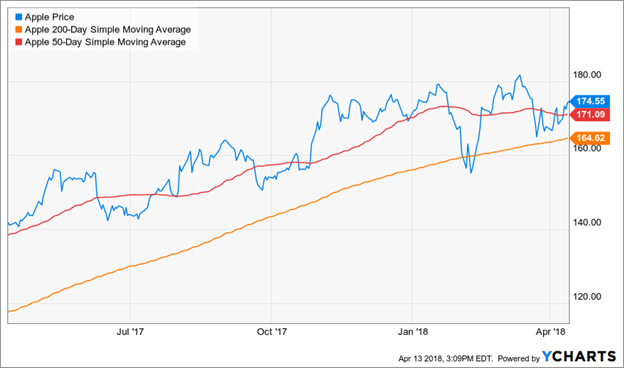Siri's Sorry State Blinds Apple Customers to Greatness Elsewhere
I have a theory. It is controversial because it involves Apple (AAPL).
But even if you’re addicted to your iPhone or MacBook — or the stock’s double- and even triple-digit yearly returns — I think you might agree with it.
First, let me say that this is a special time. There has not been so much technological innovation since the advent of electricity.
Yet most investors remain skeptical. That means they are missing some pretty big opportunities.
I blame our obsession with iPhones. That and the fact that we don’t seem to mind that the user experience is similar to that of 2011.
For most people in developed countries, the iPhone represents the very pinnacle of technology innovation. And it is not progressing at all. No wonder most us of can’t imagine self-driving cars, “Star Trek” medical devices of or any of the other gadgets futurists promise are just around the corner.
Seven years ago, Apple introduced Siri, an artificially intelligent digital assistant. The software was supposed to be a big leap forward in the way humans interacted with devices. Sort of like Hal 9000 in “A Space Odyssey,” minus the sociopathy.
Siri began as a beta product, with plenty of rough edges. All these years later, the application is still terrible.
Same goes for battery life. Despite all the software optimizations and improvements in silicon, it is still hard to walk past an electrical outlet without a tinge of panic. Will your phone last the full day without a recharge?
And why is it so difficult to manage storage, and applications?
In fairness, other companies are bringing innovation to smartphones.
Google Assistant, the contextually aware AI found on Android devices, is much better than Siri at everything. Machine learning is making it better every day.
Photos, music and other digital files are stored in the cloud by default. And the Huawei P20 looks and feels like an iPhone but the battery lasts for two full days before it needs more juice. No more wallflowering near electrical outlets.
I’m not ranting against Apple. The company makes terrific hardware. Its customers are fiercely loyal. The company earns, and re-earns, their business earned with top-notch gadgets.
Also, it’s in the company’s interest to roll out innovations slowly. Apple’s primary business is selling new iPhones. It’s hard to argue with its success.
My point is, investors need to look past their beloved screens, and see what is really happening.
Information technology is progressing at an exponential rate. The worlds of big data analytics, artificial intelligence and robotics are converging to produce astonishing innovation. Ideas that seemed like science fiction a decade ago are in the pipeline right now.
Let me give you two examples.
In 2010, managers at Nvidia (NVDA), a semiconductor maker, bet that the AI software it was developing to make computer games more realistic also had the potential to solve other big problems.
That was a great bet. For the company, and for investors.
Today, the entire automotive industry has embraced Nvidia’s software platform in the race to build self-driving cars.
Nvidia shares traded at $9.50 in August 2010. Today the stock is 24 times higher, at $235.
This is far from the only example of a company that’s making today’s great technologies even better. Right now, I encourage you to turn your eye, so to speak, toward a private company that is making medical diagnostics more effective.
The ‘Eyes’ Have It
This week, the Food and Drug Administration approved a device from IDx LLC, an Iowa startup. The health sciences company uses photographs and AI to diagnose eye disease.
The twist is this device does not require a specialist to interpret the data. After the photos are fed into the IDx-DR device, algorithms make a clinical decision. The device is fully autonomous, just like a “Star Trek” gadget.
Apart from the nerdy cool factor, the IDx-DR could democratize medicine in profound new ways by eliminating the need for a specialist.
In many smaller communities, this means primary-care physicians will be able to administer the tests, helping more patients.
I have been telling my members to not lose sight of what is happening …
Although you might not see the progress made on iPhones, it is happening. And it’s happening quickly.
This progression is the investment opportunity of our lifetime. It will produce new, high-growth business models and innovative products that will create tremendous shareholder wealth. These things are just around the corner.
In the interim, I continue to recommend buying Nvidia on pullbacks.
Best wishes,
Jon D. Markman
P.S. Even some of the most-enthusiastic Apple fans say that Siri, well, sucks. You know what really sucks? Most stocks. My research shows there are only about 30 that are worth a second look. To start getting invested in them TODAY, click here.




